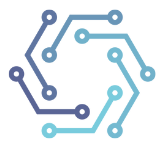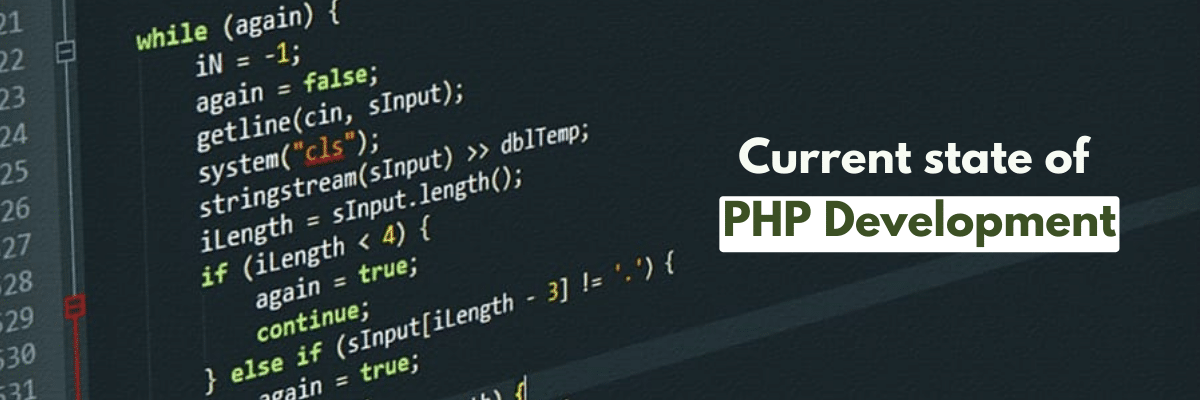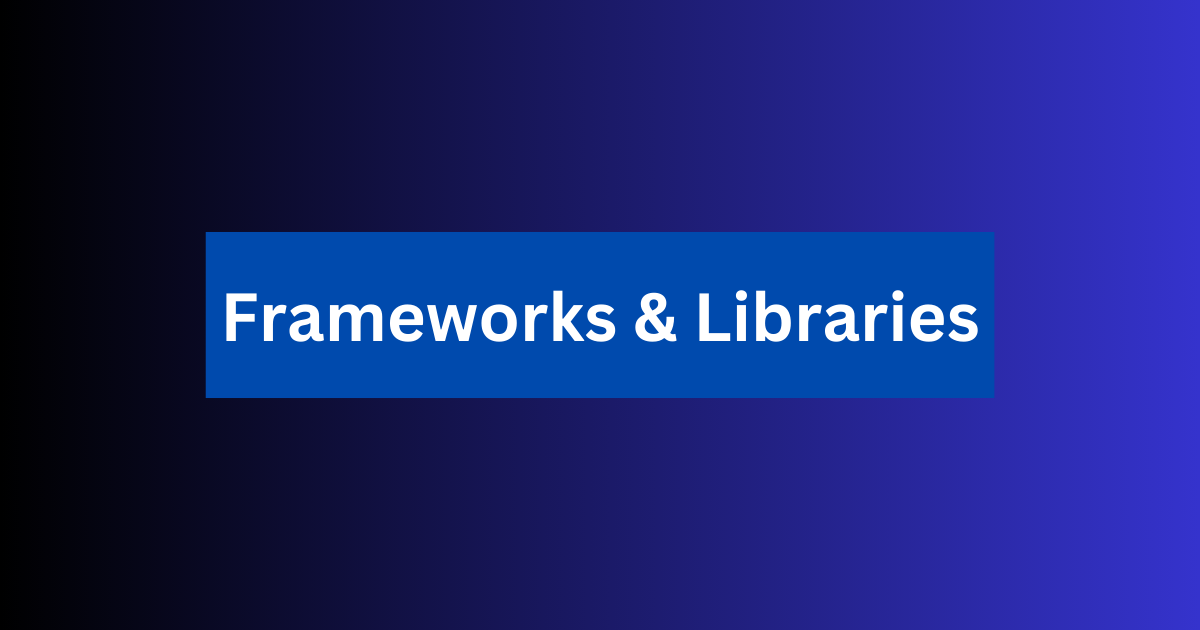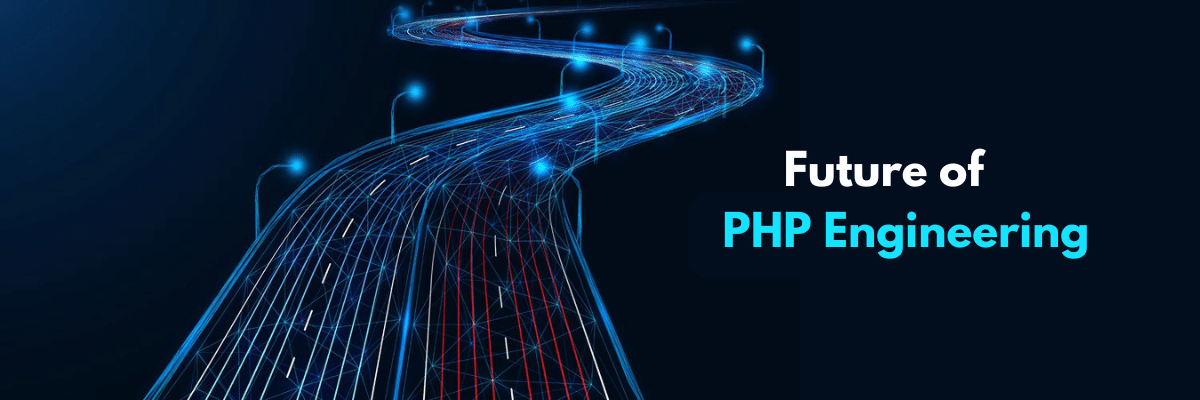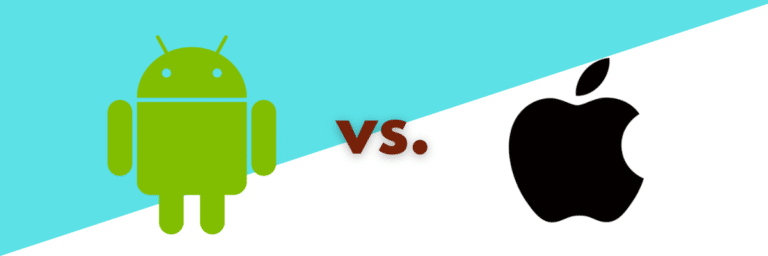Future of PHP Engineering in 2025: What to Expect and How to Prepare
The future of PHP engineering looks promising, as PHP continues to be one of the most popular programming languages for web development.
It currently powers over 79% of websites on the internet, making it a top choice for developers worldwide for more than two decades.
According to W3Techs, PHP is used as a server-side scripting and programming language, by 78.9% of all websites, highlighting its versatility and adaptability to various web development needs. Although PHP’s overall market share has seen a slight decline, it’s still the most popular programming language. PHP is the driving force behind the world’s most beloved CMS, such as WordPress, Drupal, and Joomla, cementing its position as a crucial component of web development’s future.
As we look towards the future, the importance of PHP engineering is only set to grow. With the rise of e-commerce and online platforms, the demand for PHP developers over other software programming languages has increased significantly. According to the US Bureau of Labor Statistics, the employment of web developers is projected to grow 8% from 2019 to 2029, which is much faster than the average for all occupations.
In this article, we will delve deeper into the world of PHP engineering, exploring its importance in web and desktop application development. Some of the latest trends and technologies, and what we can expect from the future of PHP engineering. Whether you are a seasoned PHP developer and web developer or just starting in the field. This article will provide valuable insights into the world of PHP engineering and how it is set to evolve in the coming years.
Table of Contents
- Current State of PHP Development
- Facing PHP Development Challenges in 2025
- Future of PHP Development
- How to Prepare for the Future of PHP Development
- Final Thoughts
- Frequently Asked Questions
Current State of PHP Development
PHP development has come a long way since its inception in the mid-1990s. Today, PHP is one of the most widely-used programming languages over other languages in the world, powering millions of websites and web applications.
The current state of PHP development is dynamic and constantly evolving, driven by the ever-changing needs of businesses and users. PHP released the latest version, PHP 8, in November 2020. It brought with it a host of new features same functionality and improvements.
Current Trends
Several key areas are shaping the future of PHP development. One of these is the rise of modern PHP frameworks such as Laravel, Symfony, and Cake PHP. These frameworks provide developers with powerful tools for building complex web applications quickly and efficiently. These frameworks are built on top of the latest PHP standards, making them highly performant and scalable.
Another trend that is shaping the future of PHP development is the increasing importance of automation and DevOps practices. With the rise of containerization and cloud computing, developers are increasingly looking for ways to automate their workflows and streamline their development processes. This has led to the development of tools such as Docker and Kubernetes. These tools allow developers to easily manage their applications in a cloud-native environment.
Frameworks & Libraries
In addition to frameworks and automation, several new PHP libraries are gaining popularity among developers. The PHP League is a collection of high-quality PHP packages that cover everything from authentication to caching and dynamic database and content management systems. It provides developers with pre-built components that they can plug into their code, making it easier to build complex applications.
Laravel, Symfony, and Cake PHP are some well-known PHP frameworks. Libraries such as Guzzle, Twig, and Doctrine also have essential tools for many PHP developers. They provide added functionality and simplify common tasks. PhpStorm, Zend Studio, and NuSphere are some of the popular PHP development tools.
Some other frameworks and PHP web development tools have been developed over time, making PHP web development safer, faster, and more productive. PHP coupled with other technologies can be used to secure the front-end web servers, as well as the backend (server) of any other web application.
Also, PHP supports a wide range of databases, including MySQL, Oracle, PostgreSQL, and MongoDB. With more database options it is easier to handle your data and redirect it.
As PHP development continues to evolve, staying up-to-date with the latest trends, PHP framework, and libraries will be essential for developers to succeed.
Challenges Facing in PHP Development in 2025

1. Cybersecurity
With the increasing importance of digital data and online transactions, cybersecurity is a major concern for PHP developers. The rise of cyber threats such as malware, phishing, and hacking requires secure applications. Developers need to protect their applications against potential attacks.
2. Skill Gaps
As PHP development continues to evolve and new technologies emerge, developers will need to keep up with the latest trends and tools. This may require additional education and training to stay current with new programming languages, frameworks, and libraries.
3. Evolving Technologies
The technology landscape is constantly changing, and PHP developers will need to keep up with the latest advancements to remain competitive. This includes keeping up with the latest trends in DevOps, automation, cloud computing, and machine learning.
4. Competition
With the increasing popularity of other programming languages and frameworks, PHP developers will face stiff competition in the job market. This means that developers will need to stay ahead of the curve by continually updating their skills. They should also develop new applications that meet the needs of their clients and users.
5. User Experience
As more and more businesses move their operations online, user experience is becoming a key factor in the success of software applications. PHP developers will need to focus on creating applications that are intuitive, responsive, and easy to use to stay competitive.
Challenges you are facing in PHP development are significant, but with proper preparation and training, developers can overcome them and build a brighter future for PHP development.
Future of PHP Engineering
As we approach the year 2025, the future of PHP engineering looks promising, with exciting opportunities and potential challenges. With new technologies and trends emerging every day, developers need to stay up-to-date and prepare for what’s ahead.
One of the most exciting opportunities for PHP engineering in 2025 is the continued growth of cloud computing. Cloud-based technologies and platforms offer developers limitless opportunities to create scalable and adaptable applications. These applications can meet changing market demands and user expectations. This means businesses can focus on providing value to their customers rather than worrying about infrastructure.
Another trend that will impact PHP development in 2025 is the integration of machine learning and data analytics. By incorporating these technologies into their applications, developers can create powerful and innovative solutions. These solutions can help businesses to make better decisions and stay ahead of the competition.
The future of PHP engineering is bright. However, developers need to adapt to emerging trends and technologies to stay ahead. By focusing on cloud computing, data analytics, and machine learning, developers can prepare themselves for the changes ahead. They can also enhance their skills in cybersecurity to position themselves for success in this dynamic and exciting field.
How to Prepare for the Future of PHP Development
PHP developers need to stay ahead of the curve to remain relevant in the rapidly evolving tech industry. With emerging technologies such as machine learning, cloud computing, and data analytics transforming how we develop software, developers must keep themselves updated with the latest trends and technologies. To excel in the digital world here are some tips and strategies for developers to prepare for the future of PHP development in 2025:
1. Continuously Learn and Upgrade Your Skills
As the industry evolves, developers need to upgrade their skills and knowledge to stay ahead. Attend webinars, read blogs and articles, and enroll in training courses to keep yourself updated with the latest trends and technologies in PHP development.
2. Stay Up-to-Date with Emerging Technologies
To prepare for the future of PHP development, it’s essential to be familiar with the emerging technologies that will shape the industry. Keep an eye on new releases and updates of frameworks, libraries, and tools.
3. Embrace Collaboration
Collaboration is key to staying on top of the latest developments in PHP web development services. Engage with other developers on forums and social media, share your ideas and opinions, and stay updated on industry best practices.
4. Stay Agile
Being agile in software development also means being able to adapt to changes quickly. It’s important to keep your development process flexible and open to change. This way, you can quickly adapt to new technologies and stay ahead of the competition.
5. Network with Peers
Networking is a great way to learn about new trends and technologies. Attend conferences and meetups, and engage with other developers to gain insights and learn from their experiences.
Final Thoughts
As we come to the end of our discussion on the future of PHP development in 2025, it’s important to reflect on the key takeaways. We have explored the current state of PHP development, the challenges facing developers, and the emerging technologies that will shape the future of PHP development. The future of PHP development will be heavily influenced by cloud computing, machine learning, and data analytics. Also, Developers have to work on PHP projects so that they will prepare for facing real-time challenges when they start their PHP career. Developers will need to stay up-to-date with these emerging technologies and on the latest frameworks and libraries.
Looking forward, the future of PHP development has the potential to greatly impact both businesses and developers. By taking action now, developers can position themselves for success in the years to come. Staying informed on the latest trends and technologies is key.
Thank you for reading through to the end. Check out our next blog -’11 Tips to be a Better Java Developer’
Frequently Asked Questions
Is PHP in demand in the future?
The demand for PHP is expected to continue in the future, as it remains one of the most popular programming languages for web development worldwide. Developers widely use PHP, and it is the backbone of popular content management systems such as WordPress and Drupal. In final words, PHP is a server programming language of choice for building e-commerce sites, social networks, and other web applications.
Will PHP be replaced?
It is unlikely that PHP will be completely replaced anytime soon. PHP has been around for over two decades, and it continues to be a popular choice for web development, powering millions of websites and applications worldwide. While other programming languages are gaining popularity, such as Python and JavaScript. They serve different purposes and use cases than PHP. While there may be some shifts in the popularity and usage of PHP. It remains a valuable skill for developers and is likely to continue to be used in web development for many years to come.
What are some of the key challenges facing PHP Engineering in 2025?
One of the biggest challenges facing PHP Engineering in 2025 will be staying up-to-date with the latest technologies and trends. As the industry continues to evolve and change, developers will need to stay current on new frameworks, tools, and programming paradigms to remain competitive.
What is PHP Engineering?
PHP Engineering refers to using the PHP programming language to develop web applications, websites, and software solutions. PHP is a server-side scripting language that is widely used for web development. It involves writing code, designing user interfaces, and implementing features and functionality using PHP and related technologies.
How long will PHP last?
It is difficult to predict exactly how long PHP will last. But based on its current popularity and usage, it is likely to remain relevant for several more years. PHP has been around for over two decades, and during that time, it has undergone significant improvements and updates. It remains a popular choice for web development, powering millions of websites and applications worldwide
How can I prepare for a career in PHP Engineering?
To prepare for a career in PHP Engineering, you will need to gain a strong foundation in computer science, programming language, and web development. This can be achieved through formal education, online courses, or self-study. Additionally, gaining practical experience through internships or personal projects can be invaluable in building your skills and knowledge.
What are some of the most popular PHP frameworks?
Some of the most popular PHP frameworks include Laravel, Symfony, CodeIgniter, CakePHP, and Yii. Also, The browser automation and testing market is captured by a framework called Selenium. Each framework has its strengths and weaknesses. So choose the one that best fits your specific needs.
What is the role of DevOps in PHP Engineering?
DevOps plays a critical role in PHP Engineering by providing developers with the tools and processes needed to automate their workflows drastically reduce development costs, and streamline their development cycles. By automating tasks such as testing, deployment, and monitoring, DevOps practices can help developers build higher-quality software in less time and with fewer errors.
Is PHP development in demand?
Yes, PHP development is still in demand. Despite the emergence of new programming languages and frameworks, PHP remains one of the most popular programming languages for web development. Moreover, as the demand for online services and user-friendly online applications continues to grow, the demand for skilled PHP developers is likely to increase as well. Many companies still prefer to use PHP for their web app development projects due to its ease of use, flexibility, and scalability
